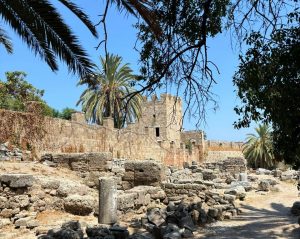Mother’s day is an annual ode to mothers and grandmothers worldwide. Mother’s Day is a chance to celebrate the gift of life and love and show one’s gratitude to the person who has been there since day one.
Although it varies among countries, most dedicate the second Sunday of May to Mother’s Day. Traditions also vary, from making mom breakfast in bed, to giving flowers, cards and presents.
The first Mother’s Day in the US was celebrated by one Anna Jarvis in 1908, who created the holiday to honor her mother who had passed away a few years prior. It quickly gained much of a following and was established as a national day of celebration in 1914.
Nevertheless, honoring mothers is, by no means, a contemporary tradition, but has rather taken various forms throughout the millennia. In actuality, such celebrations can be traced all the way back to Ancient Greece.
The ancient Greeks viewed mothers as “life givers”, and, as a result, treated them if the utmost respect and gratitude. This attitude can be see through Greek mythology as well, from which the Mother’s Day celebrations originated.
To be specific, festivals were held in honor of “Mother Earth”, i.e. the goddess Gaia, who bore hundreds of children, including Oceanus, Themis, Rhea, Iapetus, Crius, and Cronus. Although considered the “Great Mother of All”, she became more associated with celebrations revolving around the environment and Earth.
As a result, celebrations were soon passed onto her daughter Rhea, sister and wife to Cronos. Rhea is known as the “Mother of the Gods” a title granted to her for bearing the first Gods of Olympus, Demeter, Hestia, Hades, Poseidon, Zeus and Hera. Rhea represented nature and fertility and was honored by the Ancient Greeks every Spring.
Even though events in honor of Rhea are not witnessed anymore, it is interesting to see how many things we celebrate today are actually a continuation, and evolution, of traditions of the past.



